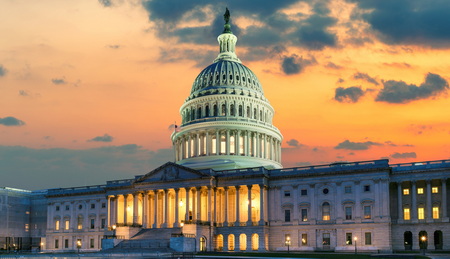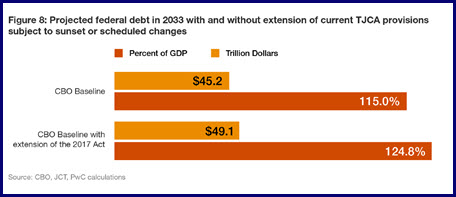
House and Senate lawmakers are discussing a short-term stopgap measure aimed at avoiding government shutdown deadlines on Jan. 19 and Feb. 2, which would also buy time to negotiate additional funding through the end of the fiscal year on Sept. 30. Meanwhile, with tax filing season slated to begin Jan. 29, congressional tax writers reported making progress this week on a potential tax package that includes measures on business interest deductibility, bonus depreciation, and the child tax credit. (CQ | PoliticoPro | TaxNotes, Jan. 11)
Funding Challenge
Tax Package Negotiations

Preview of Coming Tax Battles

The Moody’s report shows the national office vacancy rate rose 40 bps to a record-breaking 19.6 percent. The new record shatters the previous rate of 19.3% set twice previously—and reflects changing trends in business needs and the recent shift towards in remote work arrangements. (Wall Street Journal and ConnectCRE, Jan. 8)
# # #

A confluence of mandatory rules and voluntary guidelines pertaining to real estate’s climate impacts—including a first-ever U.S. definition for the term Zero Emissions Building (“ZEB”) and an imminent Securities and Exchange Commission (SEC) greenhouse gas disclosure rule—will be a key focus of policy makers in 2024.
ZEB Definition
SEC & Scope 3
179D & BPS

SCOTUS to Consider Federal Agency “Deference”

Officials from the White House, the Environmental Protection Agency, the Energy Department and leading non-governmental organizations will address issues at the nexus of buildings and climate policy on January 24 at the Roundtable’s all-member 2024 State of the Industry Meeting.
# # #

Real Estate Roundtable President and CEO Jeffrey DeBoer, above, will receive Commercial Property Executive’s Lifetime Achievement Award during CPE’s virtual 2023 Influence Awards on Thursday, Jan. 18 at 1 pm ET, when he will deliver the keynote address. (Register here for the event)
As the founding President and CEO of The Real Estate Roundtable and in previous Washington-based positions, DeBoer has been at the forefront of national policy affecting the real estate industry for the past 40 years.
The prominent Capitol Hill publication, The Hill recently recognized DeBoer as one of the "Top Lobbyists" in Washington, DC for 2023. This was the sixth consecutive year DeBoer has been included in the list. (Roundtable Weekly, Dec. 8)
# # #